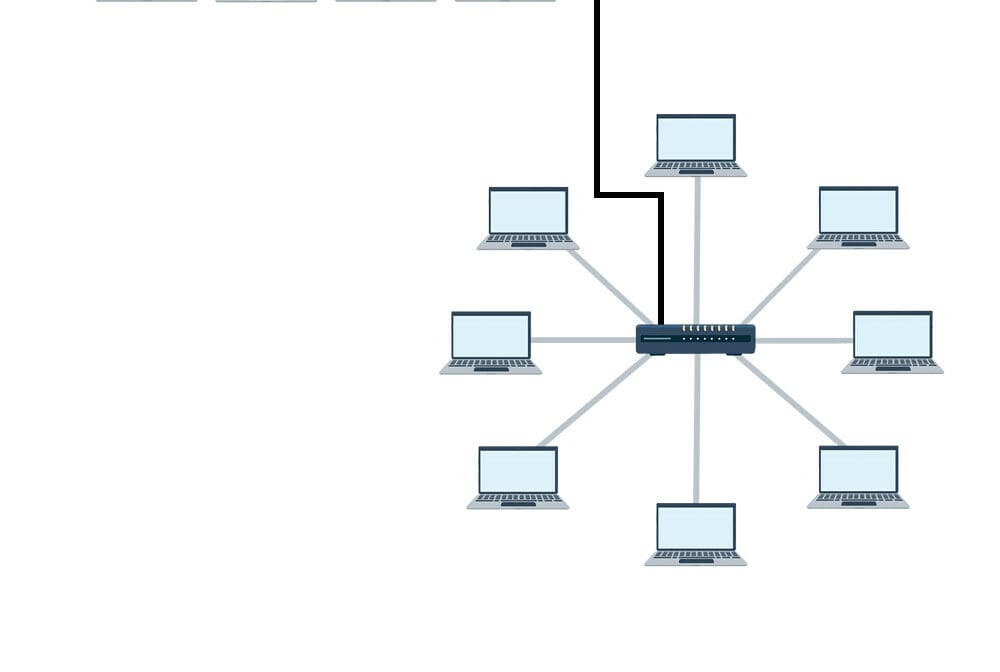Firewall Software and hardware protect computers from hackers and other online dangers by preventing harmful data from entering the system. Although hardware firewalls protect the network from external dangers, software firewalls placed on personal computers can analyze data more thoroughly and prevent certain applications from transmitting data to the Internet.
Combining the two types of firewalls can provide a more comprehensive security network for networks with high-security concerns.
Key Takeaways
- Hardware Firewall is a physical device that filters network traffic, while Software Firewall is a software program that runs on a computer or server.
- Hardware Firewall provides better protection against external threats and network attacks, while Software Firewall provides better control over individual computer systems.
- Hardware Firewall is more expensive than Software Firewall.
Hardware Firewall vs Software Firewall
Hardware firewalls are more powerful and scalable than software firewalls, providing better performance and security. Software firewalls provide granular control over network security, but are less powerful and scalable than hardware firewalls and more susceptible to being compromised by malware.

A hardware firewall separates the local computer network and the Internet. The firewall will check all data entering the Internet, secure data packets will pass through, and potentially harmful data packets will be blocked. Hardware firewalls require professional configuration to fully protect the network without affecting performance, so they may not be viable for companies without an IT department.
A software firewall protects your network’s computers against vulnerabilities. It may be implemented as a service software or on individual machines. It has the ability to regulate the behavior of particular programs. Software firewalls are less difficult to set up than hardware firewalls. As a result, this form of firewall is extensively used by small enterprises and residential users. Users can have more control over its functionality and security features because of its simplicity of modification.
Comparison Table
| Parameters of Comparison | Hardware Firewall | Software Firewall |
|---|---|---|
| Protects | One system at a time. | A whole network. |
| Operates | On system | Doesn’t operate on a system |
| Flexibility | Flexible | Not Flexible |
| Configuration | Easy | Complex |
| Cost | Expensive | Cheaper |
What is Hardware Firewall?
A hardware firewall can protect any machine on the local network with little or no setup. It employs packet filtering to look for the source and destination data in a packet’s header, which is then compared to a set of pre-defined security criteria. If the data packet meets the requirements, it will be transmitted; otherwise, it will be discarded.
A network or gateway firewall is another name for a hardware firewall. The basic goal of a firewall is to prevent access to or from a private network. All incoming and outgoing Web data packets must pass through the firewall, and the firewall will inspect each data packet and block those that do not comply with the firewall rules.
The ports in IP packets, a destination address, and a source address are all common components in these rules. In simple terms, the firewall checks each packet to determine where it came from and where it went and then decides whether it should be allowed or denied. The “network layer firewall” is the router that is commonly used for Internet connections. It does not, however, keep track of what a packet is, where it comes from, or where it goes.

What is Software Firewall?
A software firewall is a simple application placed on a computer to filter the traffic entering and leaving the computer. They’re a popular firewall option, particularly among home users with a few machines. Unauthorized access to computers, common Trojan horses, and other types of malicious software are all hazards that software firewalls prevent. The majority of these firewalls provide user-defined controls that allow for safe file sharing, peripherals such as printers and scanners, and the blocking of suspicious apps from operating on the workstation.
Many software firewalls allow you to set up safe file and printer sharing as well as prohibit dangerous programmers from executing on your system. On individual computers/servers, a software firewall is implemented. It intercepts every network request for a computer connection and assesses whether or not the request is genuine.
Any questionable outbound requests can also be checked using software firewalls. A software firewall is the best option for those who own a personal computer at home. A software firewall may be configured, giving the user some control over its functionality and security features. It guards your computer against unauthorized access attempts from the outside world.

Main Differences Between Hardware Firewall and Software Firewall
- A hardware firewall protects a single machine, whereas a software firewall protects the entire network.
- A software firewall protects the system. However, the system is not protected by a hardware firewall.
- Hardware Firewall is flexible, whereas Software Firewall is not flexible.
- Software Firewall is complex, whereas Hardware Firewall is easy.
- Hardware Firewall is expensive, whereas Software Firewall is cheaper than hardware firewall.





